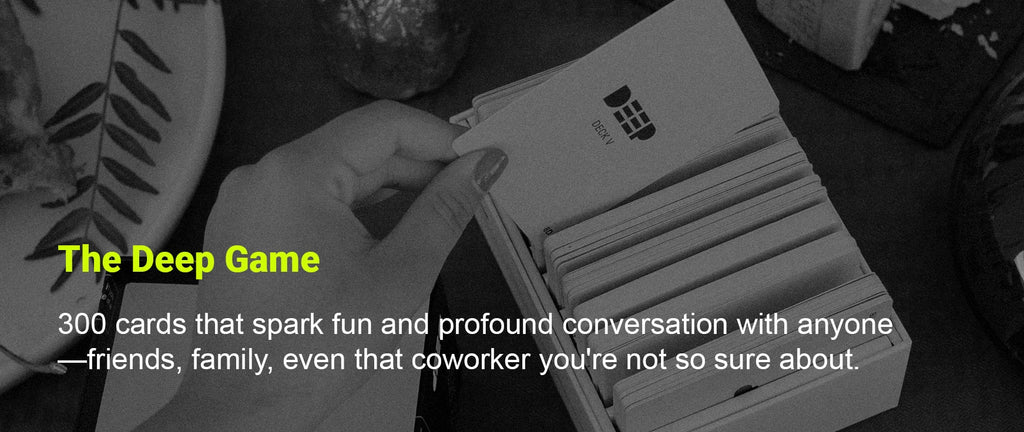If you grew up in the era before legalized marijuana, your buying experience probably consisted of surreptitiously being passed a few joints in a back alley from a shady dude named “Slizz” (and praying that wasn't short for “Slizz the Undercover Cop”). The point is, it was a shady undertaking at best.
Nowadays, the weed shops in certain states look like Apple stores: well lit, clean, and full of people all too willing to help you find the perfect product for your lifestyle.

"You still have to tell me if you're a cop, Barbara." (Source: Kind Peoples)
As of today, marijuana is legal – or legal for medicinal use – in all but 6 U.S. states. Yet the penalties for marijuana trafficking are still fairly harsh. In 2019, for example, 90% of people caught trafficking marijuana went to jail, and the average sentence was 31 months, with 15% of convicted traffickers sentenced to more than 5 years.
At the same time, opioid addiction has become a full-fledged epidemic that’s plaguing the nation.
So it’s no wonder that there’s a big debate raging about whether drugs should be: (1) fully illegal, (2) decriminalized (decriminalization = the drug is prohibited but people are no longer prosecuted for carrying less than a certain amount), or (3) fully legalized (like alcohol).
In this post, we’re gonna take a gander at some of the many arguments in this hot (box) debate.
First, let’s look at some of the arguments FOR legalization/decriminalization of drugs:
__________
Addiction is a sickness, not a crime
A big argument for legalizing/decriminalizing drugs is that addiction is a medical and psychological affliction, no different than many other ailments. The ACLU points out that we’re treating illnesses with a punitive mindset instead of using a strategy that incorporates “prevention, research, education, and social programs.”
People in this camp advocate for a shift from ‘attacking’ the problem (there has literally been a “war on drugs” since that term was coined during the Nixon administration) to one that encourages rehabilitation and addressing the root causes of drug use (unemployment, deteriorating living conditions, depression, etc.).

Addiction: not funny. Ben Schwartz: very funny. (Source: Giphy)
Stop making the bad guys richer
As you’ve probably seen in the ~3,814 TV shows, movies, and documentaries about drugs, the people who run the drug trade aren’t always, ahem, the BEST humans (see: Pablo Escobar in Narcos). By keeping drugs illegal, some people argue, we are allowing drug cartels, mafia kingpins, etc., to make a shi*t ton of money. And those guys don’t usually give that money to Habitat for Humanity, you know?

Pablo Escobar: monster or just misunderstood? (Source: NPR)
Police should focus on other things
Police often find themselves caught between their duty to enforce drug laws and the harsh reality of how difficult that job really is. For example: drug-related police work is overwhelming: it consumes more than half of all police resources nationwide.
According to this argument, legalizing drugs could help free up police from having to fight a (futile) drug war and allow them to focus on other pressing community issues, such as maintaining order and safety, going after violent criminals, etc.
Legalization has worked before
In 2001, after a decade in which 1% of the population was addicted to heroin, Portugal decided to decriminalize all drugs. (Drug dealers still face jail time there, but anyone caught using is sent to mandatory medical treatment rather than being incarcerated.)
The results have been impressive. Portugal’s addiction rates have dropped by 50%, and drug-related deaths are five times lower than the E.U. average. Plus, HIV infections from drug use are down 95%.
Oregon passed a similar law in 2020 – but the pandemic made it difficult to judge how successful the law has been. (Opioid overdoses have risen dramatically in Oregon since then, but experts believe this may be due to the devastating effects of the pandemic, including quarantine, job loss, depression, etc.)

Portugal, shown here not having drug addicts in jail. (Source: Rick Steves)
It’s a waste of money
The U.S. has reportedly spent more than a trillion bucks (with a T, y’all) fighting the war on drugs. That’s a lot of dough for a system that is, arguably, failing at its intended function.
The Substance Abuse and Mental Health Services Administration says that the number of drug users is as high as it’s been in 40 years. And research has shown that incarceration doesn’t lead to lower drug use or overdose deaths.
Advocates for the legalization/decriminalization of drugs say that it would be more effective to reallocate resources away from drug prosecution and policing to treatment for addicts and drug users.
The More You Know
Obviously there are a lot of compelling reasons to legalize/decriminalize drugs (and we didn’t even go into other “pro” arguments, like improved quality control for drugs, racial disparity in drug enforcement, etc.). But as with any good debate, there are also some pretty compelling arguments for the opposing side as well…
So without further ado let's dive into:
Arguments AGAINST the legalization/decriminalization of drugs:
__________
Legal drugs = More people using drugs
The most compelling reason for not legalizing/decriminalizing drugs is that it could lead to more people using drugs. And while recreational drug use can be a positive experience in the right circumstances, there are a LOT of cases where it can be slightly (or incredibly) negative. Case in point: how quickly/easily people become addicted to opioids.

You kids appreciate this reference from 1980, right? (Source: Tenor)
Btw, this is also why proponents of legalization/decriminalization are not necessarily “pro drug use” (in other words: they aren’t out on the streets suggesting we all try drugs). Rather, most just feel that treatment is a better alternative to jail.
Which leads us to the next argument….
Drugs are inherently dangerous
“Drugs are not dangerous because they are illegal; they are illegal because they are dangerous.” -Joseph Califano, National Center on Addiction and Substance Abuse at Columbia University
This quote is often cited as the main reason why drug legalization won’t work. The idea is that regardless of the nuances of economics, policing, etc., the ultimate problem is that you’re making a highly dangerous and easily abused/mis-used substance readily available (Of course, pro-decriminalization folks would point to alcohol and guns as examples of “legalized” dangerous items. Others feel that some drugs should be decriminalized while others should remain fully illegal; they argue that dangers of decriminalizing meth and heroin, for example, are significantly higher than the dangers of decriminalizing marijuana or psilocybin).

Unless you get that one particular 'shroom, of course. (Source: Giphy)
People who make this argument say that legalizing drugs would make them easier to obtain, less expensive, and more socially acceptable … which would inevitably lead to much higher rates of addiction and drug-related deaths. As Califano pointed out, "The United States has some 60 million smokers, up to 20 million alcoholics and alcohol misusers, but only around six million illegal drug addicts. If illegal drugs were easier to obtain, this figure would rise."
Look what legalizing opioids for medicinal use did
Pro-legalization/decriminalization advocates often point to success stories like Portugal (see above). But oddly enough, with opioids, the U.S. has had somewhat of a “trial run” of drug legalization. Here’s how it came about:
Starting in the 1990’s, pain management became a main focus of the medical field. Purdue Pharmaceuticals capitalized on this by creating and marketing the drug Oxycontin as a pain treatment – and repeatedly assured doctors that it was non-addictive, despite knowledge to the contrary. (Purdue recently settled a lawsuit for $6 billion for their part in contributing to nearly 500,000 U.S. opioid overdose deaths.)
Proponents of decriminalization point out that there’s a clear difference between the U.S. and Portugal: Portugal invested in a robust addiction and mental health treatment system. They argue that we might see similar success if we legalized drugs and invested in similar programs. But without those programs, it’s possible that legalizing powerful, addictive substances may not work in the U.S.
We should make drug laws more effective, not get rid of them
By most metrics, America’s "war on drugs" has failed. But people who are anti-legalization point out that we may see more success if we modify our drug policies and law enforcement strategies.
These people point to countries like Sweden, who have long-standing and extensive drug-control laws. They spend more than three times the E.U. average on it – and drug use in Sweden is 1/3 of the E.U. average.
People in this camp also argue that, for every legalization/decriminalization success story, there are equally compelling failures. According to the DEA, "Alaska's experiment with legalization in the 1970s led to the state's teens using marijuana at more than twice the rate of other youths nationally. This led Alaska's residents to vote to re-criminalize marijuana in 1990."

Alaska: Just say 'whoa'. (Source: Planetware)
Those are just the tip of the iceberg for arguments against legalizing or decriminalizing drugs (and we didn’t even have room for additional arguments like the public health and safety costs of overdoses/rehab, increased drug-related car accidents and fatalities, etc).
__________
The Big Takeaway
There are compelling arguments on all sides of this debate. One thing we can all agree on is that overdoses and deaths related to drug use are sad and potentially preventable. So regardless of where you come down on the issue of legalization or decriminalization, you likely see eye-to-eye (at least on some things) with someone on the opposite side of the debate.
And commonality is a good place to start from when you’re having the old “drugs, man, I don’t know” convo.

"Live long and prosper" – Sergeant James T. Spock, Star Wars Command. (Source: Giphy)
__________
Related Products



Comments
Vic Line said:
Amy plant that can be naturally grown, picked and dried before use. YES
Any drug that is grown naturally but has to be processed before it gets you high, NO.
So, if if all in nature,, could use it for medicinal..a big yes.
Pot never killed anyone, nor mushrooms or just chewing cocoa leaves. All were used through out the ages before us.
May 06, 2022